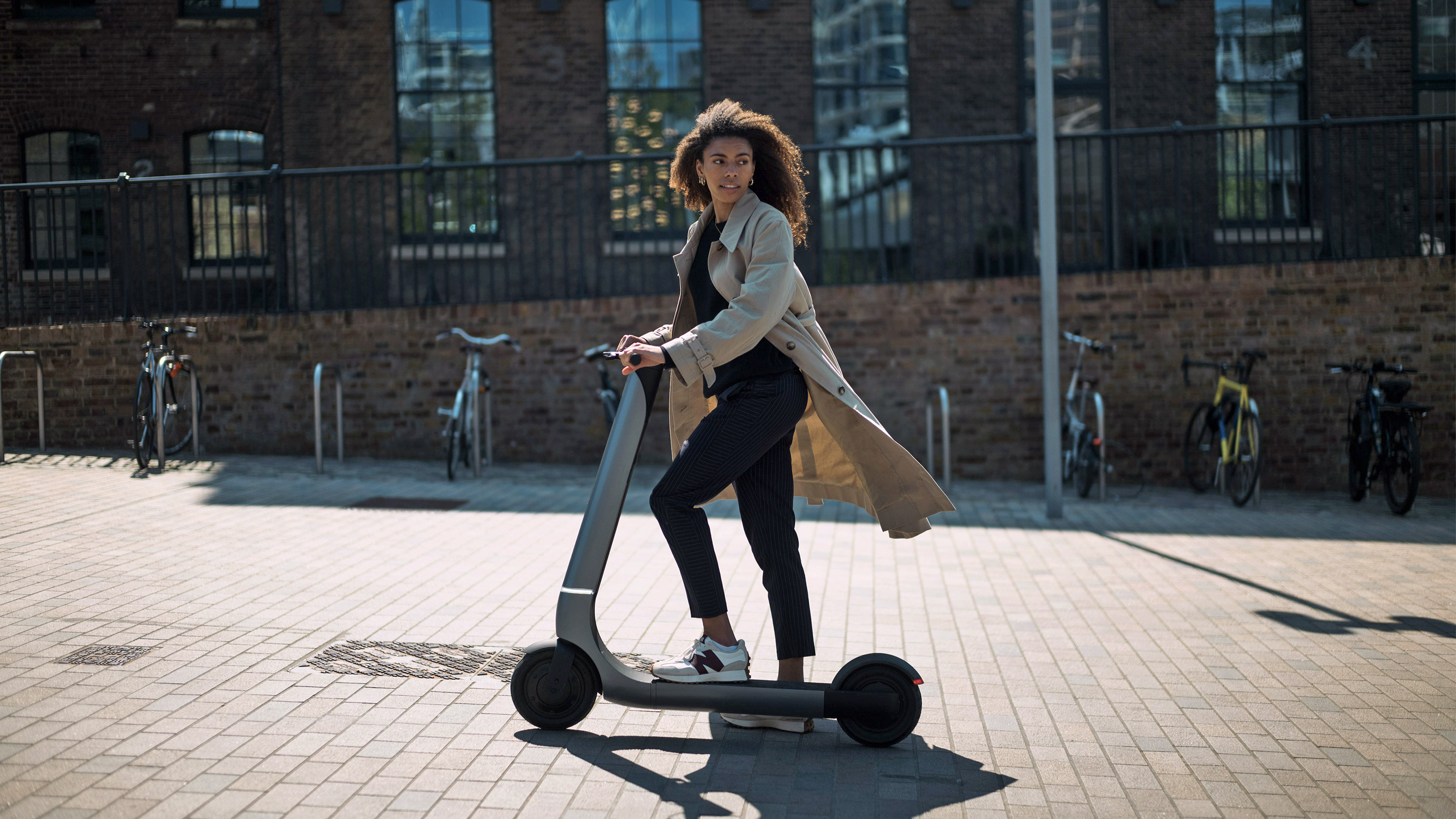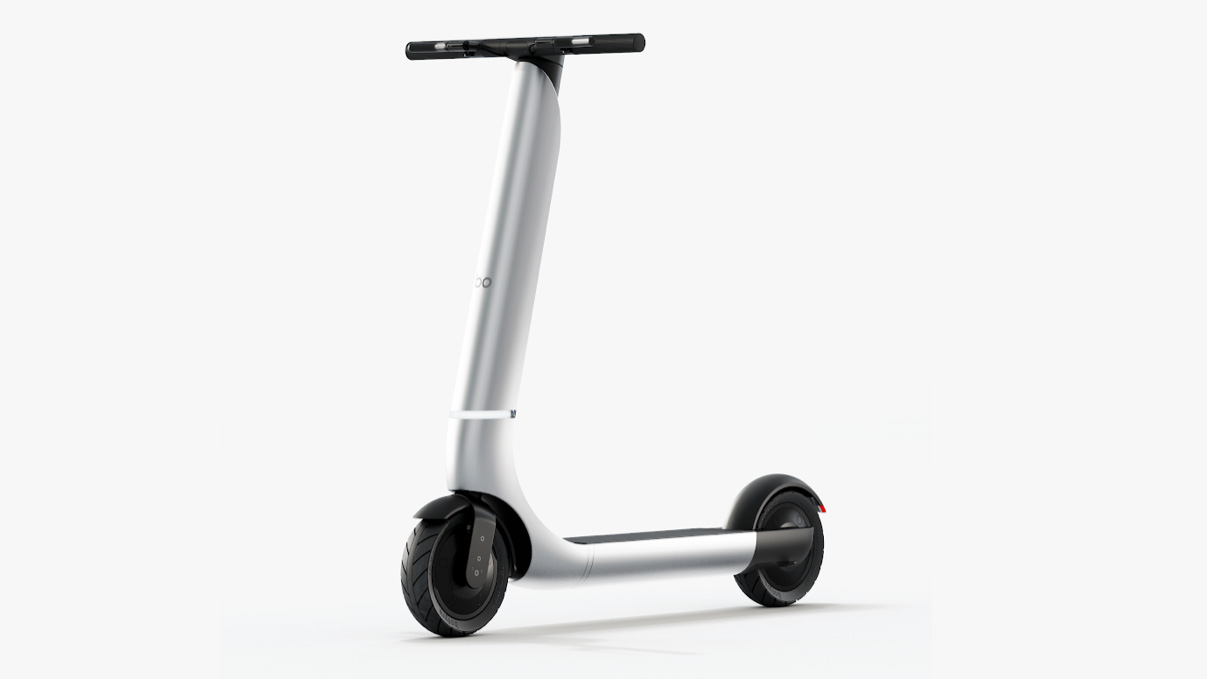This Tesla-inspired electric scooter looks amazing, but there's one problem
bo Mobility has unveiled its first flagship electric scooter

New electric scooter company bo Mobility has unveiled its slick flagship electric scooter inspired by Tesla and VanMoof, designed by ex-Formula One engineers. Although this is the company’s first foray into e-scooters, it’s packed with innovative tech, starting with its rigid curved frame and steering technology that could make it one of the best electric scooters yet.
Oscar Morgan, CEO and co-founder of bo Mobility, said in a talk to electric scooter forum Micromobility Industries: “Tesla and VanMoof made [electric cars and electric bikes] highly desirable, made them safer, more functional, and most importantly, made these products socially acceptable.” His plan is to be to electric scooters what Tesla is to electric cars: a premium, stylish brand everybody wants.
“Our background is automotive. Williams Formula One, advanced engineering, and Jaguar-Land Rover for design. We started bo with this revolutionary and unique new chassis architecture – we call it Monocurve. It moves the stress through the vehicle to the very extremities of the structure, and that lets us tune the stiffness and the strength.”
In addition, there’s a convenient space at the bottom of the Monocurve chassis that works with a “lock and load” hook that can pop out of the frame, allowing you to carry your shopping without it swinging around. Neat!
The team has also pioneered a new Safesteer technology, a new “safety paradigm” that is said to mitigate the smaller wheel size (just 10”, with a 2.75” width) and offer all the comfort and safety of steering your average push bicycle.
A steel loop allows you to D-Lock the scooter to any bicycle locking station safely. We’d understandably be a bit nervous about doing so, as the scooter’s not cheap, but it does have GPS anti-theft technology.
Specs-wise, the bo scooter has a 50km range and a potential top speed of 35mph, although local restrictions limits will be applied. The whole unit weighs 18kgs, comparatively quite light thanks to its space-age-looking aluminum frame. The scooter costs £1,995 in the UK, or £69 per month, and will start shipping in June 2023. Although there’s no US or Australia price yet, bo has confirmed to TechRadar that there are plans afoot to release the scooter internationally.
Get daily insight, inspiration and deals in your inbox
Sign up for breaking news, reviews, opinion, top tech deals, and more.

Analysis: Can bo be the “Tesla for electric scooters”?
It looks cool, there’s no doubt about that: there’s something about the rigid Monocurve frame that reminds us of the Hydrow rowing machine, a similar premium device full of innovations in a stale genre. It’s full of neat little tricks, including the pop-out hook which is one of those little gadgets sure to elicit a few good “oohs” and “aahs”, and the 50km per charge range is impressive. We can’t wait to ride it.
However, we can spot a couple of problems in bo’s quest for world domination. For one thing, as good as the Monocurve frame looks, it doesn’t fold up, so it’s not going to be the easiest thing to cart around. For another, the legislation on electric scooters as it stands is that private models are still illegal to ride on public land in many countries, including the UK.
Although these laws are changing to accommodate the emerging dominance of e-scooters and initiatives such as ride-share schemes in cities, riding the bo anywhere in public might get you slapped with a fine, depending on where you live. It’s a sexy machine so clearly designed for showing off in the city, and bo are clearly anticipating laws around electric scooters relaxing in the coming months and years.
Nevertheless, it’s a big gamble to take, and it would be a shame to drop two grand on such a cool machine, only to find out that not only can you not ride it outside your home, but it won’t fold up, so you can’t even stick it in your car to transport it anywhere else. If laws change, this won’t be the last time you hear the name bo. If things stay as they are, however, you might want to consider the best electric bikes instead.

Matt is TechRadar's expert on all things fitness, wellness and wearable tech.
A former staffer at Men's Health, he holds a Master's Degree in journalism from Cardiff and has written for brands like Runner's World, Women's Health, Men's Fitness, LiveScience and Fit&Well on everything fitness tech, exercise, nutrition and mental wellbeing.
Matt's a keen runner, ex-kickboxer, not averse to the odd yoga flow, and insists everyone should stretch every morning. When he’s not training or writing about health and fitness, he can be found reading doorstop-thick fantasy books with lots of fictional maps in them.